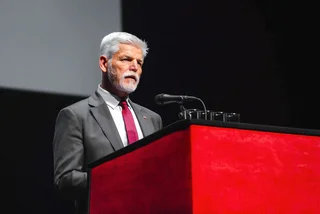Czech Foreign Minister Jan Lipavský triggered a minor uprising during Thursday’s Organization for Security and Co-operation in Europe (OSCE) summit in the North Macedonian capital of Skopje, walking out of Russian Foreign Minister Sergei Lavrov’s provocative address. Lipavský's departure set off a chain reaction as other delegates followed suit.
Lavrov's accusations that the West orchestrated a hybrid war against Russia triggered heated reactions across the diplomatic community.
PARTNER ARTICLE
Lipavský posted a tongue-in-cheek explanation of the walkout to social network X, which read: "I did not listen to the Russian Foreign Minister's speech in Skopje. I thought it would have been more useful to have our colleague, who is in charge of monitoring disinformation in the hall at that moment.”
The presence of Lavrov at the session in Skopje drew unequivocal condemnation from ministers of Spain, Finland, Sweden, and Germany, who also walked out. Lavrov's characterization of the EU as an "aggressive geopolitical project" further fueled tensions among OSCE member countries.
Lavrov’s strong claims
During his address, Lavrov underscored the impact of Western sanctions on Russia, accusing the United States and its European allies of disrupting regional cooperation. He raised concerns about Moldova potentially becoming a victim of the alleged hybrid warfare and highlighted the country's plight amid fears of Russian expansion into Moldovan territory.
Expressing dissatisfaction with the current state of the OSCE, Lavrov criticized the organization, asserting that it has become subservient to NATO and the EU. He lamented its deviation from the initial mission of fostering dialogue between East and West while strengthening European security.
The foreign ministers of Ukraine, Estonia, Latvia, and Lithuania refused to attend the talks due to Lavrov’s participation.
Amid the predominantly critical stance against Russia, Hungarian Minister Péter Szijjártó adopted a divergent approach, advocating for peace negotiations as the sole means to resolve the conflict. Szijjártó emphasized that the supply of weapons to Ukraine only prolongs the ongoing crisis.
Lipavský reaffirmed his support for Ukraine and opposition to Russia at the summit, writing later on X: "I had the opportunity to hear eyewitness accounts of the Russian massacres [in Ukraine]. It is absolutely terrifying what [Russian President Vladimir] Putin's regime is capable of. Russian officials must be held accountable for their crimes."












 Reading time: 2 minutes
Reading time: 2 minutes 
























